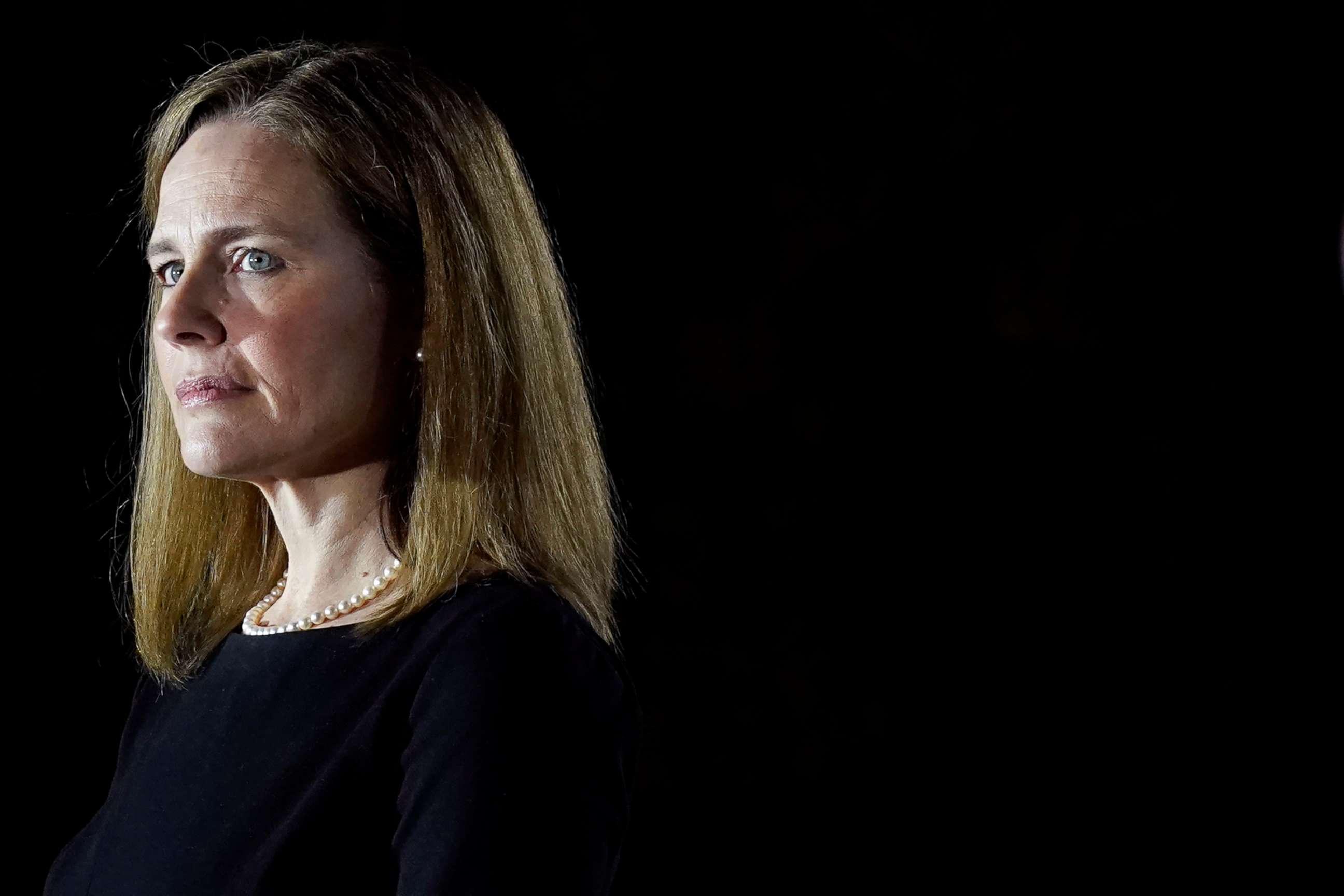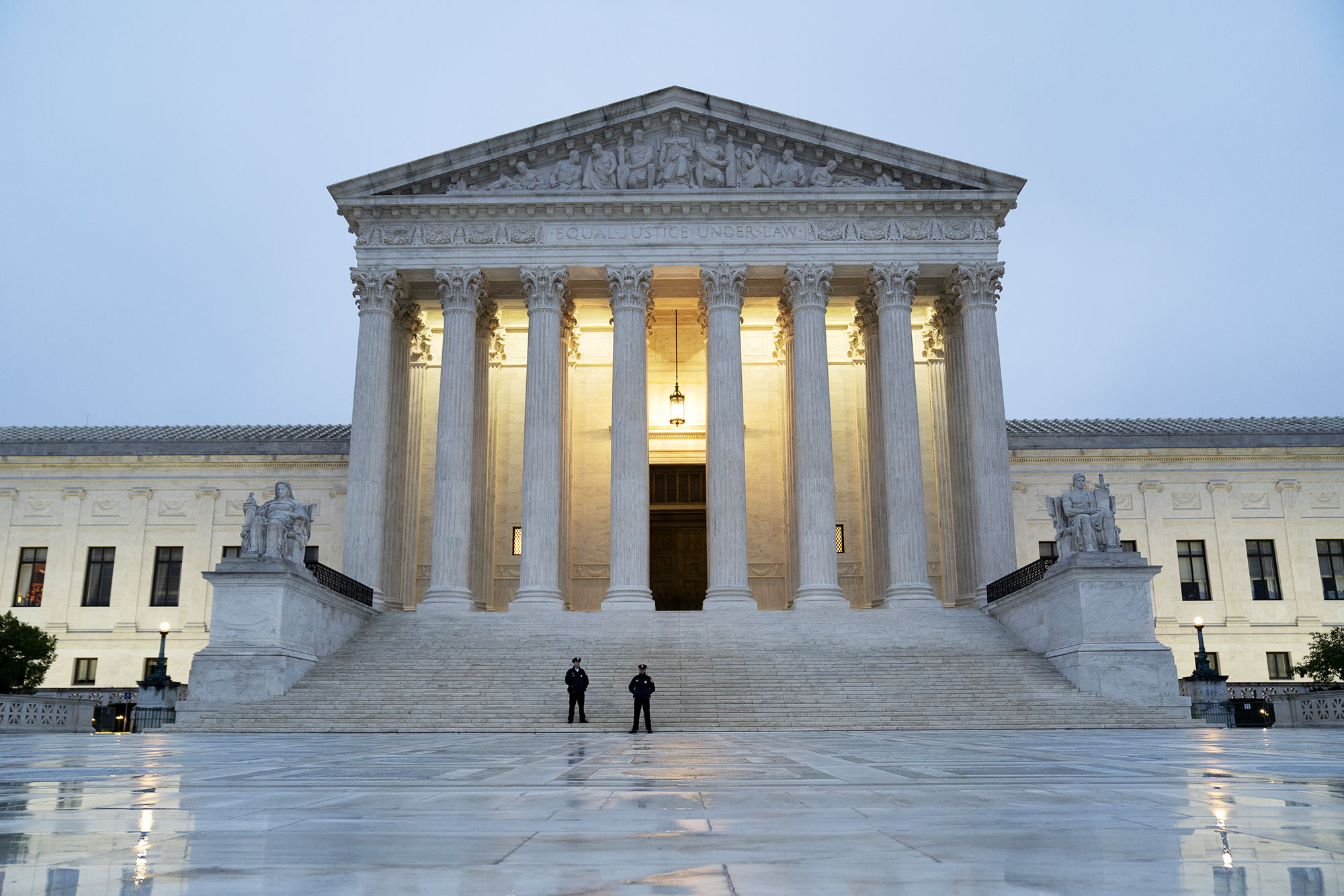Obamacare appears likely to survive Supreme Court challenge
A decision in the third major Affordable Care Act case is expected by June 2021.
With health coverage for millions of Americans on the line, Chief Justice John Roberts and Justice Brett Kavanaugh signaled Tuesday that they’re inclined to uphold the majority of the Affordable Care Act and sever the law’s individual insurance mandate if it’s deemed unconstitutional.
The U.S. Supreme Court heard arguments for over two hours in a challenge brought by President Donald Trump and 18 Republican-led states seeking to invalidate the mandate and the entire law.
It was the third major challenge to the law since it was enacted in 2010 and its fate became a major issue in the just-completed presidential election.
The court in 2012 ruled that the requirement of all Americans to have health insurance, originally enforced with a financial penalty, was constitutional under Congress’ taxing power. Five years later, the Republican Congress zeroed out the penalty but left the mandate on the books. Americans are currently still asked to buy health insurance but the law is not enforced.
“The same Congress that lowered the penalty to zero did not even try to kill the Act,” noted Chief Justice Roberts. Opponents may have “wanted the court to do that, but it’s not our job.”
“Congress left the rest of the law intact,” Roberts added. “That seems compelling evidence on the question.”

Justice Brett Kavanaugh concluded that Congress expressly wanted to preserve protections for people with preexisting conditions. “It sure seems that way,” he said.
Both Kavanaugh and Roberts spoke repeatedly about the court’s precedents that affirm a “strong presumption of severability” in the event a portion of a major law, like the ACA, is deemed unconstitutional.
“It’s a very straightforward case for severability under our precedents,” said Kavanaugh.
The two conservative justices, with the court's three liberal members, would be a sufficient number to preserve the bulk of Obamacare, even if a majority also finds the government directive to buy insurance unlawful.
If the law were struck down in its entirety, an estimated 52 million Americans would lose health insurance, according to an analysis by the Urban Institute. More than 54 million Americans with preexisting conditions would also lose protections under the law.
Justice Samuel Alito, who has been hostile to the ACA in previous cases, also suggested openness to severing the mandate as a non-essential component of the law, though he was less emphatic than Roberts or Kavanaugh.
“There was strong reason to believe that the individual mandate was a part in an airplane essential to keep the plane flying… but now the part has been taken out and the plane has not crashed,” Alio said.
A ruling to sever the mandate but uphold the bulk of the ACA would effectively affirm the status quo in the U.S. health care system, health policy experts say.

Justice Amy Coney Barrett, the court’s newest member who was appointed by President Trump with express hopes she would vote to kill the law, was openly skeptical of the mandate and the idea that it could be severed.
"What should we make of the fact that Congress didn’t repeal the provision?" Barrett asked California Solicitor General Michael Mongan, who was leading defense of the law. "You’re asking us to treat it like it’s been repealed but that’s not what Congress did."
Justice Barrett later suggested that if the court were to strike down the entire law that the Congress could simply fix the situation.
“If the court construes a statute in a way,” Barrett said, "wouldn’t Congress be free to come back and say, 'no, no that’s not what we intended.'"
As an academic, Barrett had been highly critical of Chief Justice Roberts' 2012 decision upholding the law. Her analysis was a focal point of her Senate confirmation hearing, when she insisted that she was "not hostile" to the Act.
Texas Solicitor General Kyle Hawkins, arguing on behalf of 18 states seeking to overturn the ACA, called the amended mandate a “naked command” that exceeded Congress’ power. He said everyday Americans have been harmed by following the government’s directive.
Several of the court's conservative justices were sympathetic to that argument.
“This court held that the mandate was a permissible exercise of taxing authority… That seems to have withered away,” said Justice Neil Gorsuch. “It’s on the books."
Justice Clarence Thomas compared it to state mask mandates during the pandemic, suggesting that choosing to go against the mandate could bring public "opprobrium," even if it is not enforced.
But the Court’s liberal justices delivered an impassioned defense, arguing the now-toothless mandate was hardly a burden on anyone.
"How is it that, you know, this mandate just by itself without any penalty is anything more than a supplication or entreaty?" asked Justice Stephen Breyer, who compared it to a non-enforceable government command to buy war bonds, plant a tree or clean your yard.
Much of the nearly two hour session focused on the issue of standing and whether the states led by Texas and two individual plaintiffs had suffered sufficient injury under the mandate to even bring the case. The justices divided over that question.
"In this change, where Congress reduces the penalty to zero, Congress has made the law less coercive," argued Justice Elena Kagan. "How does it make sense to say what was not an unconstitutional law before is so now, given less coercive force?"
The justices will now deliberate on the case and draft an opinion that is expected for release by the end of June 2021. In the meantime, Congress and a new President Joe Biden could attempt to neutralize the case by either restoring the individual mandate penalty -- or entirely repealing the mandate; but neither is seen as a likely quick step in a divided Washington.
Former Obama administration solicitor general Donald Verrilli, representing the U.S. House in defending the ACA, argued implored the Court to consider how many Americans have come to rely on the law
"To assume that Congress put all of that at risk when it amended the law in 2017, is to attribute to Congress a recklessness that is both without foundation in reality and jurisprudentially inappropriate," Verrilli said. "In view of all that has transpired in the past decade…. only an extraordinarily compelling reason could justify judicial invalidation of this law at this late date."
This report was featured in the Wednesday, Nov. 11, 2020, episode of “Start Here,” ABC News’ daily news podcast.
"Start Here" offers a straightforward look at the day's top stories in 20 minutes. Listen for free every weekday on Apple Podcasts, Google Podcasts, Spotify, the ABC News app or wherever you get your podcasts.




